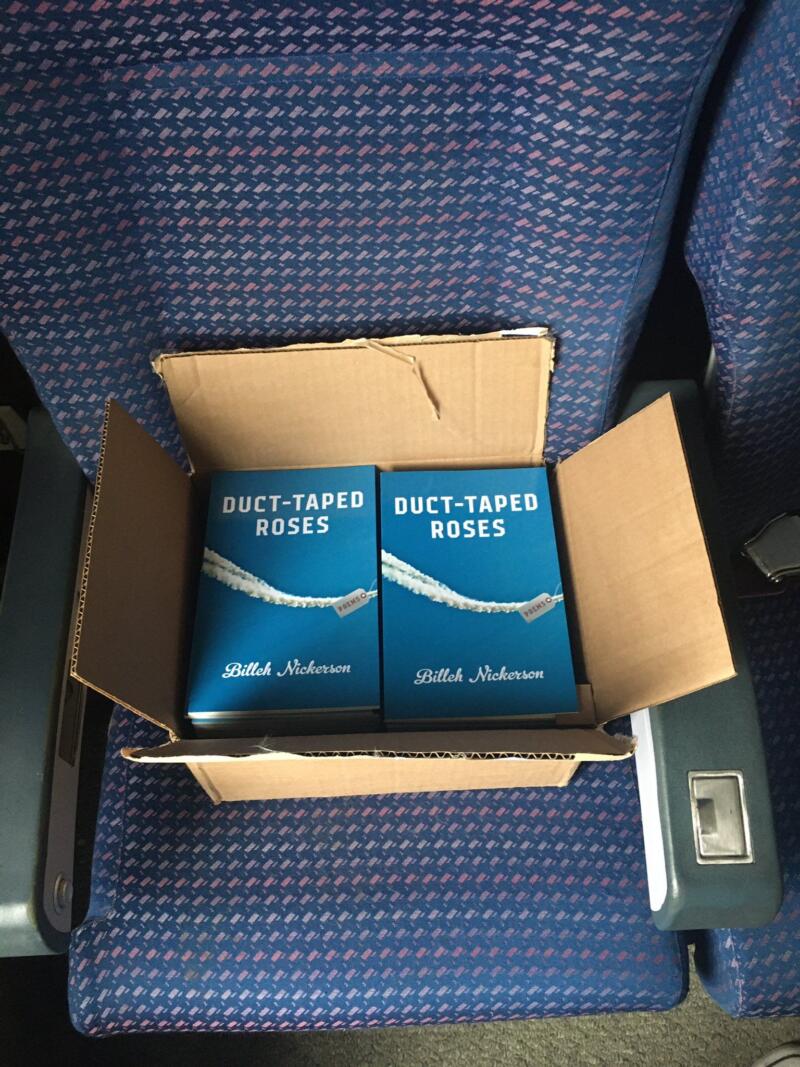1402 Lovers, friends, family
Duct-taped Roses
by Billeh Nickerson
Toronto: Book*hug Press, 2021
$20.00 / 9781771666909
Reviewed by Grace Lau
*
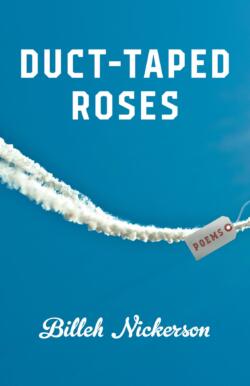 Lovers, friends, family: We are all we have
Lovers, friends, family: We are all we have
Duct-taped Roses, Billeh Nickerson’s sixth book (note to self: must read the other five) is divided into five parts, each one a vivid meditation on a theme in his life.
Even from the title of the very first part, “Rhymes with Boyfriend,” Nickerson is playing with you, the reader — and your expectations. At first glance, you may think, as I did, that these are “rhymes written about / in the presence of a boyfriend (or boyfriends).”
But Nickerson does something more subversive than that. Even though none of these poems contain words that literally rhyme with boyfriend, they are rich in themes that are echoes of boyfriends, and more interestingly, that expand our perceptions of the meaning of boyfriends. There is intimacy, love, sex, friendship, and yes, a boyfriend or two in these poems, and Nickerson slyly blends these together to show how these lines can blur, as they often do in queer communities.
In “Six Years On,” the first poem, he already destabilizes the reader’s idea of “boyfriend.” The poem is about his best friend, who’d recently passed away, and what could’ve been if they had had a daughter together. As Nickerson takes you through old photos of the two of them, you feel not only the ache of nostalgia, but also (if you’re not careful) an acute sense of possibility that there isn’t just one kind of best friend.
In fact, the vignettes could easily be of someone reminiscing about a boyfriend.
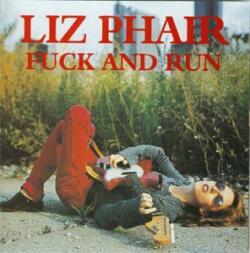
In this photograph
he’s mysterious,
lanky and shirtless
as he plays his vinyl
of Liz Phair’s “Fuck and Run.”
…
In this photograph
I try to recreate
his recipe
for shepherd’s pie.
…
In this photograph,
the first day of school,
I can’t find
our daughter
and I can’t find him.
For many readers, especially those who aren’t queer, this can sound a bit jarring, but maybe through this poem, Nickerson is asking, “Do you really have to be someone’s boyfriend or lover to see — and love — all these different sides of who they are?”
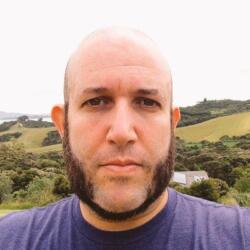
In “Hachey,” “Polkaroo,” and “Zaccheus,” Nickerson writes in memory of friends and acquaintances. And although a life cut short is an acute sort of grief, especially in the gay community, it almost seems wrong to call these elegies because Nickerson writes them with such tenderness, admiration, and joy:
So many of us have met men
who could steal our hearts,
but so few like you
who’d give them back
Improved.
I imagine it must be a great privilege to be known, and seen, by Nickerson.
In the book’s second section, “Skies,” Nickerson remembers his father, a bush pilot, and his portrayal of the life of a pilot is, refreshingly, very different from what’s shown in TV and movies.
But what struck me the most is the scene where he asks his father about how AIDS impacted his airline decades ago, juxtaposed with his memory of coming out to his father. It’s always fascinating to see how parents from different generations and cultures express love to their children — and how, often, there seems to be a distance that love must travel.
Call it a generation gap or a cultural gap, but miraculously, if we are lucky, that distance somehow doesn’t diminish the love at all, as Nickerson shows here with both love and honesty.
In the short poems in “A Baker’s Dozen — 13 Vancouver Food (in)Securities,” Nickerson lays out a Bingo card that would be recognizable to (but probably not fun for) anyone who has lived or lives in Vancouver.

$25-per-kilo organic jelly beans in Kitsilano? Check. Overpriced condos? Got ‘em. Local favourite, Uprising Breads? Yep. (They’re one of my favourite places on The Drive when I lived in Vancouver and I miss their pastries very much.)
And of course, the gelato.
Gelato stores are the cockroaches
of the hospitality world.
No matter how often
or by how much rent increases
somehow they survive.
It asks us, pointedly, not only who is eating what in Vancouver — but also who is not eating, and why?
In “Langley,” Nickerson flows through a series of memories of growing up in Langley. Most of them are souvenirs of the innocence and fun of childhood, but he interweaves them with less pleasant memories showing the first cracks in that childhood. Friends’ parents’ divorces. Being called gay slurs on the street while still just a kid. Friends dying.
But the beauty of “Langley” is in how it ends: a startling discovery that even the sky can fall. That maybe, just maybe, you can hold it in your hands too. It feels very much like a shattering of all the memories, everything that came before it — but also an opening.
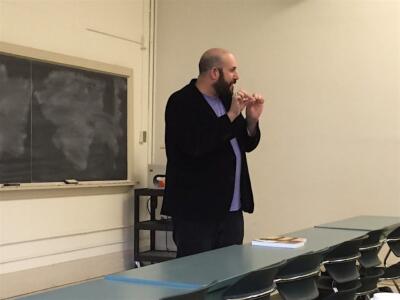
And finally, in “Curiosa,” Nickerson explores a variety of, well, curiosities. (Did you know that V4G 1N4 is a postal code in Delta? I didn’t.)
“Ball Twins” is weird and hilarious, and “Let Them Eat Snake” offers the classic farmer’s market family dilemma: do you let your kids eat snake burgers, or is that ethically wrong? Nickerson can’t help himself but suggest that this couple just give the kids hot dogs and say it’s snake:
… but this doesn’t go over well
with the couple, who immediately hug
as though there’s been an earthquake,
some violent act of God.
And just when you think it’s all balls and porn and identity theft, he throws in something like “The Taxidermist,” inspired by seeing a taxidermist on the news whose neighbourhood has just been flooded:
and I couldn’t stop
thinking about those animals,
whether they’d be mourned
a second time.
That is one of the most disarming things about Nickerson’s writing, and it’s something that this final act of the collection really drives home: how he follows joy with humour and sadness (not always in that order). Yes, Duct-taped Roses takes you through some of life’s best highs and also its most terrible lows, but it’s the full spectrum of the human experience — and worth a ride-along.
*
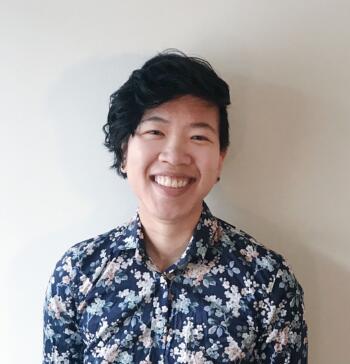
Grace Lau is a Hong-Kong-born, Chinese-Canadian writer living in Midland, Ontario. Her debut collection of poetry, The Language We Were Never Taught to Speak (Guernica Editions, 2021) was reviewed by Linda Rogers. Visit her website and connect on Twitter here. Editor’s note: Grace Lau has also reviewed books by Isabella Wang, Nancy Lee, and Evelyn Lau for The British Columbia Review.
*
The British Columbia Review
Publisher and Editor: Richard Mackie
Formerly The Ormsby Review, The British Columbia Review is an on-line journal service for in-depth coverage of BC books and writers. The Advisory Board consists of Jean Barman, Wade Davis, Robin Fisher, Cole Harris, Hugh Johnston, Kathy Mezei, Patricia Roy, Maria Tippett, and Graeme Wynn. Provincial Government Patron (since September 2018): Creative BC. Honorary Patron: Yosef Wosk. Scholarly Patron: SFU Graduate Liberal Studies.
“Only connect.” – E.M. Forster
